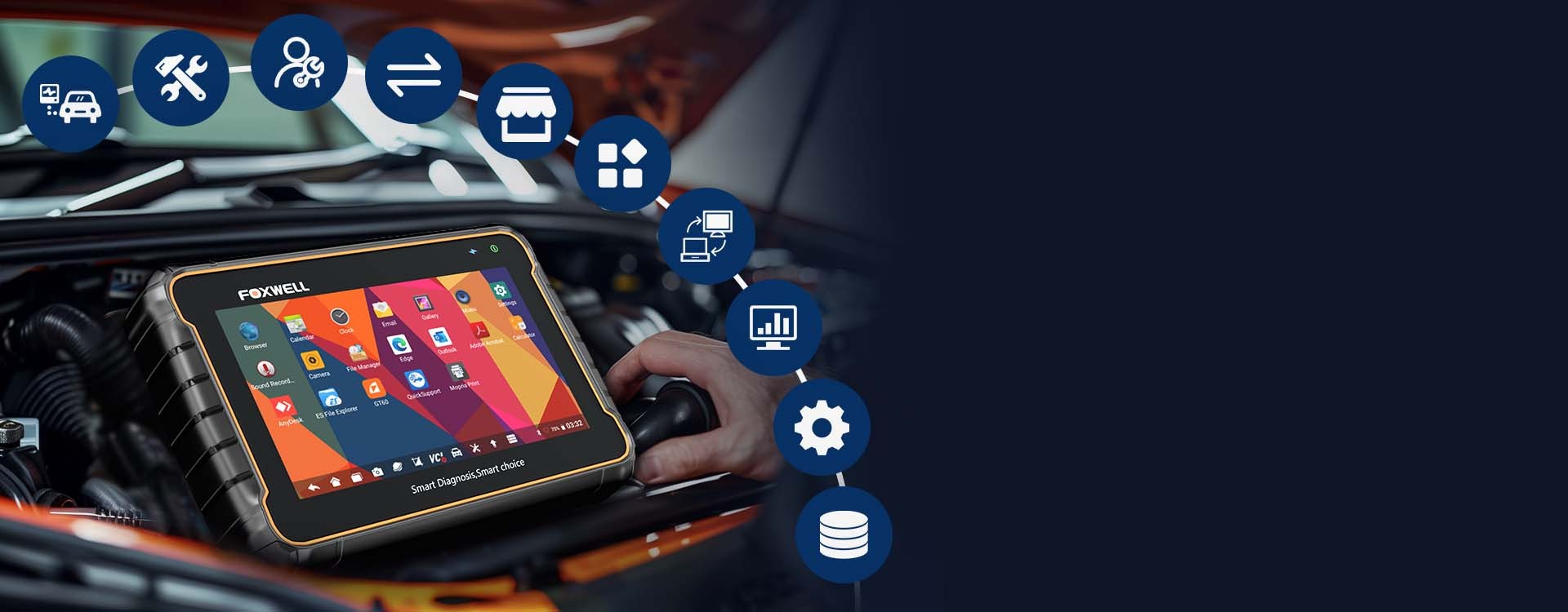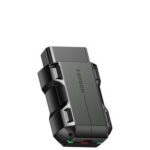As a content creator for obd2scanner.store and a seasoned auto repair specialist, I often encounter car owners concerned about the impact of their OBD2 scanners on their vehicle’s battery. Many users rely on these invaluable tools for vehicle diagnostics, but a common question arises: will leaving an OBD2 scanner plugged in drain my car battery?
This article dives deep into this critical issue, providing expert insights into the relationship between OBD2 scanners and battery drain. We’ll explore when and why battery drain can occur, and most importantly, offer practical strategies to prevent it, ensuring you can confidently use your OBD2 scanner without worrying about a dead battery.
OBD2 Scanners and Battery Drain: Understanding the Potential
The short answer is yes, an OBD2 scanner can drain your car battery. However, the situation is nuanced and depends on several factors. OBD2 scanners draw power from your vehicle’s OBD2 port. This port remains active even when your engine is off, allowing the scanner to communicate with the car’s computer systems.
While OBD2 scanners are designed to have minimal power consumption, comparable to other low-power systems like your car’s alarm or onboard computer, leaving one plugged in for extended periods can still lead to battery drain. The key issue lies in whether your vehicle’s OBD2 port continues to draw power after the ignition is turned off. If it does, the scanner, even with its low draw, can gradually deplete the battery over time, especially if the car is not driven regularly. This becomes a more significant concern if the OBD2 scanner has additional features that consume more power.
Does an OBD2 Scanner Drain the Battery When the Engine Is Off? Delving Deeper
Whether an OBD2 scanner drains your battery when the engine is off largely depends on your car’s specific electrical design. Some vehicles are engineered with an auto shutoff feature for the OBD2 port. In these cars, the port’s power supply is automatically cut off when the ignition is turned off, effectively eliminating the risk of battery drain from a connected OBD2 scanner.
Unfortunately, many modern vehicles, and particularly some older models, keep the OBD2 port powered continuously. In such cases, a plugged-in OBD2 scanner will consistently draw a small amount of power, even when the car is parked and seemingly off. While the drain might be minuscule in the short term, over days or weeks, especially if the car is left unused, it can become significant enough to noticeably weaken or even drain the battery, particularly if the battery is already aged or not in optimal condition.
Long-Term Connection of an OBD2 Scanner: Assessing the Impact
Connecting an OBD2 scanner for extended durations presents a greater risk of battery drain, especially if your vehicle isn’t used frequently. While the power draw of a typical OBD2 scanner is low, continuous drain over time accumulates. This becomes particularly problematic for batteries that are older or already weakened, as they are more susceptible to even minor parasitic drains.
The situation can worsen with OBD2 scanners that have additional power-consuming features. Scanners equipped with Bluetooth or Wi-Fi connectivity, for example, often draw more power than basic, wired models. These advanced scanners may remain active, attempting to maintain connections or perform background processes even when the vehicle is off, further contributing to battery depletion. Therefore, long-term connection, particularly with feature-rich scanners in vehicles with always-powered OBD2 ports, should be approached with caution.
How to Prevent OBD2 Scanners From Draining Your Car Battery: Practical Steps
To effectively prevent your OBD2 scanner from causing unwanted battery drain, consider these straightforward yet crucial practices:
Unplug the Scanner When Not in Use: This is the most direct and effective method. Simply unplug your OBD2 scanner after each diagnostic session. While it might seem slightly inconvenient, this simple action completely eliminates any potential for battery drain when your car is off. Treat it as a routine step after you’ve finished using your scanner.
Utilize Scanners With Auto Shutoff Features: When purchasing an OBD2 scanner, look for models that advertise automatic shutoff or sleep mode features. Many newer wireless OBD2 scanners are designed to power down automatically when the engine is turned off or after a period of inactivity. These features significantly reduce power consumption and offer a more convenient solution for preventing battery drain.
Opt for Low-Power Devices: Choose basic OBD2 scanners that are designed for minimal power consumption. Scanners without extra features like Bluetooth or Wi-Fi generally draw less power. If battery drain is a primary concern, especially for long-term use or in vehicles prone to battery drain, a simpler, low-power model is a wise choice.
Regularly Assess Your Battery Health: A healthy car battery is more resilient to parasitic drains. Periodically check your car battery’s health, especially if it’s over three years old. Ensure it’s properly charged and in good condition. A weak or aging battery is far more vulnerable to being drained by even a small continuous power draw from an OBD2 scanner.
OBD2 Scanners With Low Power Consumption Features: Smart Choices
When selecting an OBD2 scanner, prioritizing models designed for low power consumption is a smart strategy to minimize battery drain risks. The Foxwell NT809BT advanced diagnostic scanner is an excellent example of a device that balances powerful functionality with efficient energy use.
The Foxwell NT809BT, and similar models, often incorporate features like Bluetooth Low Energy (BLE), which optimizes power consumption during wireless communication. Furthermore, intelligent software design can enable these scanners to enter low-power or sleep modes when inactive. These power-saving features are particularly beneficial for users who prefer the convenience of leaving their scanner plugged in or who use wireless scanners frequently. By choosing such scanners, you can benefit from advanced diagnostic capabilities without undue concern for battery drain.
Best Practices for Utilizing an OBD2 Scanner Without Draining Your Battery: A Summary
To solidify your understanding and ensure you use your OBD2 scanner responsibly without risking battery drain, here’s a concise recap of best practices:
- Unplug consistently: Make it a habit to unplug your OBD2 scanner every time you finish using it, especially if you know your car’s OBD2 port remains powered when the engine is off.
- Choose energy-efficient scanners: When purchasing a new scanner, prioritize models with auto shutoff or low power consumption features.
- Test your OBD2 port: Check if your vehicle’s OBD2 port remains powered after the ignition is off. You can do this by simply plugging in your scanner (or any USB powered device) after turning off the car and seeing if it remains active. If it does, be extra cautious about leaving devices plugged in.
- Maintain battery health: Regularly inspect your car battery’s condition and replace it if it shows signs of weakness. A healthy battery is more resistant to drain.
Common Misconceptions About OBD2 Scanners and Battery Drain: Clearing the Air
Let’s address some common misunderstandings surrounding OBD2 scanners and their impact on car batteries:
Misconception 1: “OBD2 scanners will definitely drain my battery.” While possible, it’s not a certainty. The power draw is minimal, and significant drain usually only occurs with prolonged connection in vehicles with always-powered OBD2 ports, or with faulty scanners. For typical short-term use, battery drain is unlikely to be noticeable.
Misconception 2: “All OBD2 scanners consume the same amount of power.” This is incorrect. Power consumption varies. Advanced scanners with features like Bluetooth, Wi-Fi, or larger screens generally consume more power than basic, wired scanners. Choosing a scanner appropriate for your needs, considering power efficiency, is important if battery drain is a concern.
Conclusion: Using OBD2 Scanners Safely and Effectively
In conclusion, OBD2 scanners can potentially drain your car battery, but this is generally preventable with mindful usage. The risk is primarily associated with leaving scanners plugged in for extended periods, particularly in vehicles where the OBD2 port remains powered when the engine is off.
By adopting simple preventative measures such as unplugging your scanner after use, opting for low-power or auto shutoff models, and maintaining good battery health, you can confidently utilize the diagnostic benefits of your OBD2 scanner without worrying about unexpected battery drain. Understanding the nuances of OBD2 scanner power consumption and your vehicle’s electrical system empowers you to use these tools effectively and responsibly.
FAQs
Does the OBD2 port have constant power supply?
In many modern vehicles, yes, the OBD2 port often remains powered even when the engine is off. This design allows for diagnostics and data access without the engine running. However, some vehicle manufacturers implement systems that cut power to the OBD2 port after a certain period of inactivity or when the vehicle is fully shut down. It’s crucial to check your vehicle’s manual or consult with a mechanic to determine if your OBD2 port is constantly powered.
Will an OBD Dash Cam drain the battery if left plugged in?
Yes, absolutely. An OBD dash cam, similar to an OBD2 scanner, can drain your car battery if left connected for extended periods when the vehicle is not in use. OBD dash cams, especially those with continuous recording or parking mode features, draw power constantly. If your vehicle’s OBD2 port is always powered, a plugged-in OBD dash cam will steadily deplete the battery over time. It’s advisable to unplug OBD dash cams when the car is parked for long durations or consider using dash cams that are hardwired into the car’s electrical system with battery discharge prevention features.
Can I leave my OBD2 scanner plugged in all the time?
Technically, you can leave an OBD2 scanner plugged in continuously, but it’s generally not recommended, especially if you are unsure if your OBD2 port is always powered. While the power draw is minimal, the risk of gradual battery drain, particularly in less frequently driven vehicles or those with older batteries, outweighs the convenience. For peace of mind and to ensure optimal battery health, it’s best practice to unplug your OBD2 scanner after each use.


